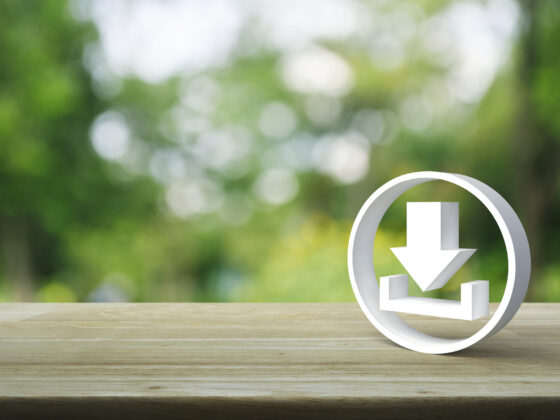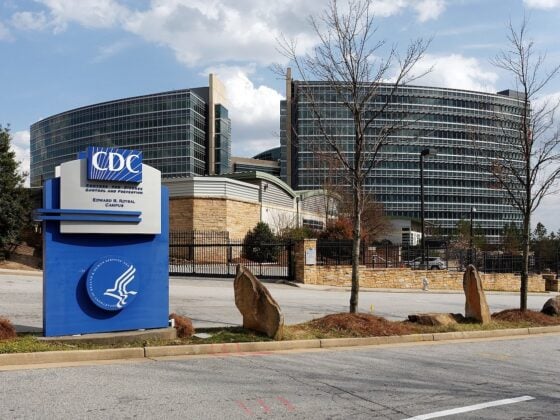This year marks the 40th anniversary of If You Give a Mouse a Cookie, the classic children’s book by Laura Numeroff. Years ago, I read it to my son more times than I can count—along with its delightful sequels, If You Give a Moose a Muffin and If You Give a Pig a Pancake.
They’re great stories, all built around a simple idea: one thing leads to wanting another. In the case of the mouse, he’s given a cookie… and that sets off a whole chain of requests: a glass of milk, a straw, a napkin. Eventually, he wants another cookie.
While they’re sweet, fun books, I recently found myself thinking about them in a very different context: healthcare. Specifically, the long-running—and still unresolved—debate about something called moral hazard.
So, What Is Moral Hazard?
Despite the name, moral hazard isn’t about morality—it’s about behavior. It describes what happens when people act differently because they’re shielded from risk.
Here’s a simple example of it. Let’s say four friends go out to dinner and agree in advance to split the bill evenly. One person was planning to order the $15 pasta. But now that everyone’s sharing the cost, he figures—why not get the $30 steak and a $10 dessert? His $25 splurge ends up costing him just $6.25 when the bill is split.
That’s moral hazard in action: when people don’t feel the full cost of what they consume, they may take more than they otherwise would.
Pickleball or Physician?
In health care, moral hazard refers to the idea that people might use more services than they truly need if they’re not paying the full cost out-of-pocket.
That’s the concern some health economists raise. They argue that if care is too affordable—say no copays, no deductibles—people might abuse the system. Make office visits free? Maybe someone will go to the doctor for a runny nose or a paper cut. No cost for diagnostic tests? Why not ask for every scan you read about online, “just to be sure”?
And yes, that happens. But let’s take a step back. If you were feeling perfectly fine and had a free afternoon, would you rather go to a doctor’s appointment—or play pickleball?
As the late Princeton economist Uwe Reinhardt once said:
“You always hear that the demand for health care is unlimited. This is just not true. People who are very well insured, who are very rich—do you see them check into the hospital because it’s free? Do people really like to go to the doctor?”
Sure, some people might use more care when it’s affordable—but it’s a mistake to assume that’s true for most. Getting health care isn’t a spa day. No one wakes up craving a colonoscopy.
Skip the Syrup
While some worry about people taking “too much,” millions of Americans aren’t even getting what they need—or anything at all. They’re not overusing the system—they’re avoiding it.
They don’t have insurance. Or they’re underinsured. Or the deductible and cost-sharing make seeking care cost-prohibitive. So they wait, they worry, and they hope the problem goes away. Too often, when they finally do seek care, their conditions are more advanced—and more expensive to treat.
Pancakes and Priorities
If you give a pig a pancake, he might ask for syrup. But for too many people, the pancake never comes.
When it comes to health care, we’ve spent decades fretting about overuse and inappropriate use—and not nearly enough time ensuring everyone has access to affordable care.
It’s time to flip the script. Let’s stop worrying about the syrup and start delivering the pancake—so we can move from just treating illness to building a healthier, future for everyone.
Happy reading,
Suzanne Daniels
- Health Beat: new organ donation safeguards, benefits of a four-day work week and student loan caps may worsen doctor shortage.
- RX Matters: claim denials increase, inappropriate prescribing in urgent care settings and NIH cuts expected to result in fewer drugs.
- DC Direction: FDA panel on SSRIs sets off alarms, RJK Jr. expected to dismiss U.S. Preventive Services Task Force members, and Labor Department proposes workplace rule changes.
- Pastimes: including my personal favorite, How Do Dogs Watch TV? That Might Depend on Their Personalities, New Research Suggests!
Health Beat
Associated Press
US organ donation system faces scrutiny and changes after reports of disturbing near-misses
HealthDay
Four-Day Work Week Benefits Workers, Employers, Study Says
Stateline
Student loan caps might worsen the national doctor shortage, critics worry
Rx Matters
New York Times
Health Insurers Are Denying More Drug Claims, Data Shows
University of Michigan Medicine
Inappropriate prescriptions for antibiotics, glucocorticoids and opioids common at urgent cares
New York Times
Health Cuts Would Result in Fewer Drugs for Americans, Budget Office Reports
DC Directions
Los Angeles Times
FDA panel on the use of antidepressants during pregnancy is alarming experts
Wall Street Journal
RFK Jr. to Oust Advisory Panel on Cancer Screenings, HIV Prevention Drugs
Associated Press
Trump’s Labor Department proposes more than 60 rule changes in a push to deregulate workplaces
Pastimes
Smithsonian Magazine
Why 18th-Century Americans Were Just as Obsessed With Their Genealogy as We Are Today
JSTOR Daily
Take Me Out to the Class Game: Social Stratification in the Stadium
Smithsonian Magazine
How Do Dogs Watch TV? That Might Depend on Their Personalities, New Research Suggests
Enjoy the weekend!
Best,
Suzanne
Suzanne Daniels, Ph.D.
AEPC President
P.O. Box 1416
Birmingham, MI 48012
Office: (248) 792-2187
Email: [email protected]

News you can trust



